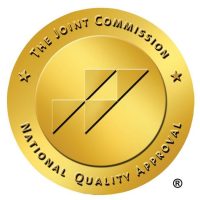Dementia is a general term that describes a group of symptoms associated with cognitive decline, which can impact a person’s memory, thinking, and social abilities. With numerous types of dementia existing, it is essential to understand the differences and symptoms of each to ensure proper care and treatment. This article will explore the different types of dementia, their symptoms, and their various stages.
What Is Dementia?
Dementia is a neurological condition characterized by a decline in cognitive abilities, such as memory, reasoning, and communication skills. It usually affects older adults but can also occur in younger individuals. While Alzheimer’s disease is the most common type of dementia, many other forms exist.
How Many Types of Dementia Exist?
There are numerous types of dementia, with some estimates suggesting over 100 different forms. However, a few primary types account for the majority of cases. Here are the five most common types of dementia:
- Alzheimer’s Disease
- Vascular Dementia
- Lewy Body Dementia
- Frontotemporal Dementia
- Mixed Dementia
Alzheimer’s Disease
Alzheimer’s disease is the most common type of dementia, accounting for 60-80% of cases. This progressive neurological disorder is characterized by the buildup of amyloid plaques and neurofibrillary tangles in the brain. Alzheimer’s symptoms include:
- Memory loss that disrupts daily life
- Difficulty planning or solving problems
- Trouble completing familiar tasks
- Confusion with time or place
- Changes in mood and personality
Vascular Dementia
Vascular dementia is the second most common type of dementia and results from impaired blood flow to the brain. Symptoms of vascular dementia can vary depending on the affected region of the brain but may include:
- Impaired judgment or planning
- Memory problems
- Slowed thinking
- Difficulty concentrating
- Changes in behavior or personality
Lewy Body Dementia
Lewy body dementia is characterized by the presence of abnormal protein deposits called Lewy bodies in the brain. It shares some symptoms with Alzheimer’s and Parkinson’s diseases, making it challenging to diagnose. Symptoms of Lewy body dementia include:
- Visual hallucinations
- Fluctuating cognitive abilities
- Parkinsonian motor symptoms (tremors, stiffness)
- Sleep disturbances
- Sensitivity to antipsychotic medications
Frontotemporal Dementia
Frontotemporal dementia affects the frontal and temporal lobes of the brain, leading to changes in personality, behavior, and language. This type of dementia is more common in people aged 40-65. Frontotemporal dementia symptoms include:
- Personality and behavior changes
- Difficulty with language and speech
- Apathy or emotional blunting
- Impulsive or inappropriate behaviors
- Loss of empathy
Mixed Dementia
Mixed dementia occurs when a person has multiple types of dementia simultaneously, such as Alzheimer’s disease and vascular dementia. Symptoms will vary depending on the specific combination of dementia types.
Dementia Types and Stages
Each type of dementia progresses through stages, though the number and severity of these stages can differ. Alzheimer’s disease, for example, is typically divided into three stages: mild (early-stage), moderate (middle-stage), and severe (severe late-stage). Recognizing the stages of dementia can help in managing the condition and providing appropriate care.
Mild (Early-Stage)
In the early stage of dementia, symptoms may be mild and may not significantly impact daily life. Early warning signs of dementia can include:
- Forgetfulness
- Difficulty concentrating
- Changes in mood or personality
- Struggling with organization and planning
For more information on early warning signs, visit our article on early warning signs of dementia.
Moderate (Middle-Stage)
During the moderate stage, symptoms become more apparent and start to interfere with daily activities. Caregiving may become necessary as the individual faces increased difficulties. Symptoms during the moderate stage may include:
- Increased memory loss
- Confusion and disorientation
- Difficulty recognizing familiar people or places
- Changes in sleep patterns
- Worsening language and communication skills
In the severe stage, the person with dementia may become entirely dependent on others for their care. Memory and cognitive abilities continue to decline, and physical abilities may also be affected. Symptoms in the severe stage may include:
- Inability to communicate
- Severe memory loss
- Inability to walk or perform daily activities
- Difficulty swallowing
- Increased vulnerability to infections
Understanding the different types of dementia is crucial in providing proper care and support for those affected. If you or a loved one is experiencing symptoms of dementia, consult with a healthcare professional for a thorough evaluation and appropriate treatment plan. For more information on memory care and how it can help individuals with dementia, visit our article on memory care.
At Celebrate Senior Living, we are committed to celebrating the moments, victories, and memories that will last a lifetime for our residents and their loved ones. We are a Midwest-based foundation that serves Illinois and Indiana residents by offering Independent Living, Assisted Living, Memory Care, and Skilled Nursing living options. We also provide three delicious, healthy meals a day to ensure our residents get the nutrients they need!
If you or a loved one are interested in senior living options, schedule a tour with us today! You can also learn more by exploring our communities, which include South Holland, Niles, and Fort Wayne, or by contacting us with any other questions!
